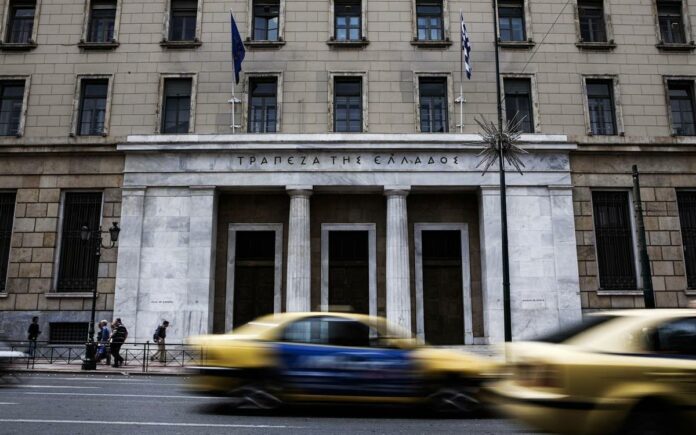A deficit of 910 million euros in current accounts, increased by 857 million euros, was reported (yoy) on Monday by the Bank of Greece (BoG) for the first eight months of 2018, with the central bank referring to a worsening in the balance of goods and in the primary income account. The BoG added that this trend was partly offset by improvements, primarily in the services balance as well as in the secondary income account.
The full BoG press release reads:
“In August 2018, the current account showed a surplus of €1.6 billion, down by €262 million year-on-year, mainly due to a deterioration in the primary income account, which was attributable to lower receipts from dividends, interest and profits. At the same time, the deficit of the balance of goods increased marginally and the surplus of the balance of services showed a small decline, while the secondary income account remained almost unchanged.
The deficit of the balance of goods registered a small increase, despite a pickup in export growth, as imports rose more than exports in absolute terms. It should be noted that, at constant prices, total exports of goods increased by 15.8% (non-oil exports of goods rose faster, by 18.8%) and total imports of goods by 6.1% (non-oil imports of goods grew by 11.5%).
The surplus of the services balance narrowed due to a deterioration in the other services balance, which is mainly attributable to a worsening of the financial services balance. By contrast, the travel balance and the transport balance improved. Specifically, non-residents’ arrivals rose by 4.8% in August year-on-year and the corresponding receipts grew by 1.4%. An improvement was seen in the transport balance, mainly on account of an increase in net sea transport receipts by 13.0%.
In the January-August 2018 period, the current account registered a deficit of €910 million, up by €857 million year-on-year, as a result of a deterioration in the balance of goods and in the primary income account, which was partly offset by improvements chiefly in the services balance as well as in the secondary income account.
A widening in the deficit of the balance of goods by €961 million is mainly a result of the higher net oil import bill, due to higher oil prices. The non-oil deficit also increased, although the relevant exports rose by 14.4% (13.4% at constant prices), outpacing the corresponding imports, which grew by 10.0% and 9.9% at current and constant prices, respectively. However, imports in absolute terms grew more than exports.
The surplus of the services balance rose by €754 million, on account of improvements in the travel balance and the transport balance, while the other services balance deteriorated significantly. Specifically, non-residents’ arrivals and the corresponding receipts rose by 11.6% and 11.1%, respectively. Additionally, transport receipts also increased, by 13.9%.
Lastly, the primary income account showed a deficit, against a surplus in the same period of 2017, mainly due to lower receipts from interest, dividends and profits, while the deficit of the secondary income account declined, owing to an improvement in the general government component.
Capital account
In August 2018, the capital account surplus registered a remarkable increase in comparison with August 2017, due to higher net capital transfers from the EU to general government. In the January-August 2018 period, the capital account surplus fell by €91 million year-on-year.
Combined current and capital account
In August 2018, the combined current and capital account (corresponding to the economy’s external financing requirements) showed a surplus of €1.7 billion, down by €172 million year-on-year. In the January-August 2018 period, the combined current and capital account recorded a deficit of €626 million, against a surplus of €322 million in the same period of 2017.
Financial account
In August 2018, no remarkable changes were recorded under direct investment. Under portfolio investment, a net increase in residents’ external assets is almost exclusively due to a rise of €639 million in residents’ holdings of foreign bonds and Treasury bills. A net decrease in their external liabilities is mainly attributable to a decline of €569 million in non-residents’ holdings of Greek government bonds and Treasury bills.
Under other investment, a net increase in residents’ external assets is mainly attributable to a rise of €1.2 billion in residents’ deposit and repo holdings abroad and to the statistical adjustment related to holdings of banknotes. A net increase in external liabilities mainly reflects a net rise in the outstanding debt of the public and the private sector to non-residents (including ESM lending to general government) and a decline due to the TARGET account.
In the January-August 2018 period, under direct investment, residents’ net external assets and liabilities – the latter representing foreign direct investment – registered increases of €432 million and €2.6 billion, respectively.
Under portfolio investment, a net decrease in residents’ external assets is chiefly attributable to a decline of €1.1 billion in residents’ holdings of foreign bonds and Treasury bills. A net increase in their external liabilities is mainly due to a rise of €2.2 billion in non-residents’ holdings of Greek government bonds and Treasury bills.
Under other investment, a net decrease in residents’ external assets is attributable to both a decline of €2.0 billion in residents’ deposit and repo holdings abroad and the statistical adjustment related to holdings of banknotes. A net decline in external liabilities reflects mainly a drop of €24.9 billion in non-residents’ deposit and repo holdings in Greece (the TARGET account included), which was largely offset by a €20.2 billion increase in the outstanding debt of the public and the private sector to non-residents.
At end-August 2018, Greece’s reserve assets stood at €6.1 billion, compared with €6.4 billion in August 2017.”














